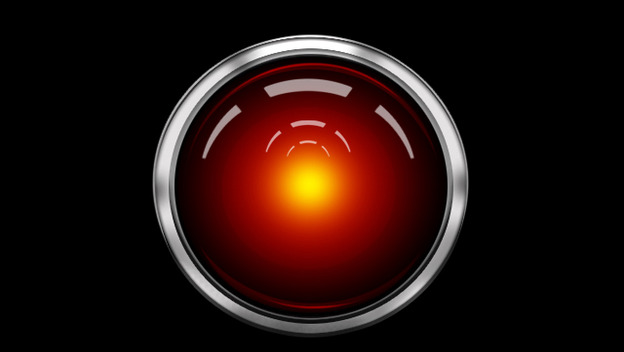Your computer (or console) is probably a better gamer than you are. Ideally speaking, it can do millions, if not billions, of calculations in the time it takes you to do a single one and, when both you and computer are given a set of rules and the ability to manipulate variables within them, doubtless the computer will be able to consider your possible moves far more rapidly and accurately than your fleshy brain can ever hope to. It also has the advantage of knowing what you’ve pressed immediately, and what the result of that input will be.
Luckily for you, your gaming device is kneecapped by its own set of rules: the A.I. programmed by the developers to keep you and the computer on relatively even keel, such that your gaming experience will prove enjoyable rather than frustrating. The goal is generally to provide a challenge without stepping too far into the realm of frustrating. This seems most difficult to accomplish in fighting games, but is an art form everywhere; gunfire can’t be too accurate, reactions can’t be too swift, but they also have to provide a credible threat.
In these days of ubiquitous multiplayer and evolved design principles, though, it might be that we’re taking this art form for granted, and forgetting our relationship with the A.I. of our games.
This isn’t true Artificial Intelligence. Not in the science fiction sense, anyway. A.I. refers to the rules that govern NPC behavior in games. It comes up most often when it’s too “dumb,” when the A.I. seems geared toward letting the player win or, alternatively, when one’s NPC partners are woefully ineffective at their tasks. Which is another balancing act, as NPC partners have to be helpful, or at least unobtrusive, without doing the work for the player.
The best way to think of it might be as a form of theater. The player serves as the star of the show, while the A.I. represents actors attempting to play off of them, to create not only a performance, but a believable experience for the player. When you defeat a difficult boss, that sense of accomplishment you feel comes from having surmounted an obstacle, whether by defying the odds or proving one’s supremacy of skill. It’s up to the A.I. to provide that by “acting,” playing the villain to your hero (or vice-versa) and making you feel threatened, but still providing a means by which you may excel. If it’s really good at what it’s doing, it’ll even help teach you to better play the game it’s in.
This balance is effectively an illusion. Your enemies are locked into specified behavioral patterns, which are purposely sub-optimal. They attack and leave openings, they mistakenly cast spells when they have insufficient magic, they spend turns grooming themselves rather than shredding you into mincemeat.
Gaming is about fulfilling a fantasy. Maybe it isn’t a specific fantasy you’ve had, but it scratches a familiar itch of some kind. Maybe you spent your childhood dreaming of being a gallant knight or a high-flying superhero. Perhaps you love animals, and the idea of bonding with them through shared trials appeals to you. It could even be so basic as a drive to play the hero, to succeed at something incredibly difficult. The game doesn’t have to make you into a knight to let you feel like one, though, nor does it have to accurately simulate caring for animals, and the actual challenge you experience doesn’t have to be as difficult as it is for the characters involved (though, sometimes, that’s the appeal). This is entertainment, after all, so it just has to be plausibly so.
That’s where the A.I. comes in, the actors on the game’s stage. It’s telling that, in improvisational theater, the rule is “yes, and…” The moment you tell someone else that they can’t proceed down an avenue, you bring the performance to a standstill. In that manner, A.I. is at its best when it plays with you, providing an enjoyable counterbalance to your own skills and abilities. Rare is the player who wants to be shut down and told “no, not until you are this much better!” That begets frustration and ultimately dissatisfaction. Instead, even when a player fails, they should feel as though the challenge is possible to beat, for them, even if they haven’t managed it yet. All of this is hidden beneath the surface, all of these restrictions piled upon the computer, dictating its behavior in the context of your game, so that what you play is enjoyable.

It might be moot today, given how popular online multiplayer is. People can just play against each other instead, which means their victories are “real,” a measure of superiority rather than a means to enjoying a perfectly crafted illusion. For those with a competitive state of mind, who derive pleasure more from holding themselves aloft above others, the games they play are just a means of exercising that sort of dominance. There’s nothing wrong with that, and most people probably enjoy both sorts of gameplay to some degree. Certainly those who play co-op rather than competitive multiplayer still benefit from well-crafted Artificial Intelligence.
Just think about that the next time you sit down and play a few rounds against bots, work your way through the story in a new RPG, or dive into the latest action game. Think about how the A.I. achieves that balance that makes your play session enjoyable, about what’s going on beneath the surface of the action. And try not to think too much about how badly the computer would kick your ass, if we’d only let it.
 | By Shelby Reiches Lead Contributor Date: March 1, 2013 |
